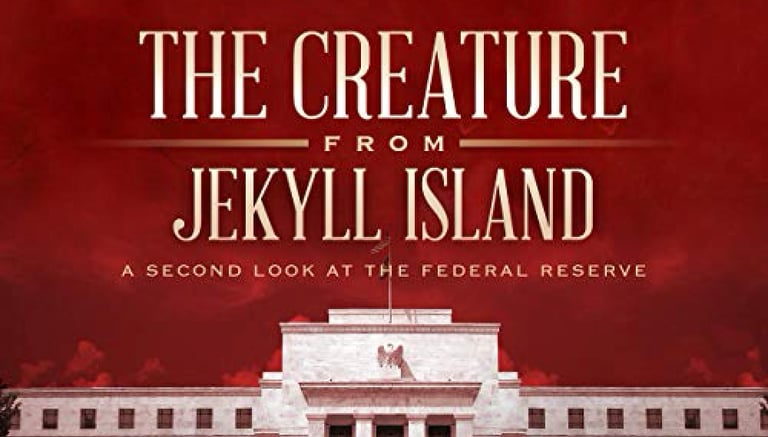A review of "The Creature from Jekyll Island"
A book about central banks and money in the world
3/3/20242 min read


A Review of "The Creature from Jekyll Island" by G. Edward Griffin
In "The Creature from Jekyll Island," G. Edward Griffin delves into the obscure depths of American finance, unraveling a narrative as gripping as it is disquieting. With meticulous detail and unwavering scrutiny, Griffin exposes the clandestine birth and clandestine machinations of the Federal Reserve System, an institution often shrouded in mystery and misconceptions.
The book begins with an enigmatic prologue, setting the stage for a journey into the annals of history where powerful financiers conspired in secrecy to reshape the economic landscape of a nation. Griffin masterfully navigates through the intricacies of monetary policy, taking readers on a riveting exploration of the events leading up to the creation of the Federal Reserve in 1913 on Jekyll Island, Georgia.
Central to Griffin's narrative is the notion that the Federal Reserve, far from being a benevolent steward of the economy, is in fact a clandestine entity serving the interests of a select few. He argues that the Federal Reserve's ability to create money out of thin air, coupled with its lack of transparency and accountability, has enabled it to wield immense power over the nation's economy, often to the detriment of the average citizen.
Throughout the book, Griffin meticulously dissects the Federal Reserve's operations, revealing a web of collusion between powerful bankers, politicians, and bureaucrats. He exposes how the Federal Reserve's policies have fueled inflation, debt, and financial crises, while enriching the banking elite at the expense of the general public.
One of the book's most compelling aspects is Griffin's exploration of the Federal Reserve's role in shaping global geopolitics. He argues that the Federal Reserve's ability to manipulate the money supply has been used as a tool of economic warfare, enabling the United States to exert control over foreign nations and advance its geopolitical interests.
Griffin's writing is both lucid and impassioned, making complex financial concepts accessible to the layperson while imbuing the narrative with a sense of urgency. His meticulous research and attention to detail lend credibility to his arguments, compelling readers to reconsider their perceptions of the Federal Reserve and its role in society.
Despite its provocative thesis, "The Creature from Jekyll Island" is not without its critics. Some scholars and economists have challenged Griffin's assertions, arguing that his narrative oversimplifies complex economic phenomena and ignores the broader historical context in which the Federal Reserve operates.
However, regardless of one's stance on the Federal Reserve, "The Creature from Jekyll Island" is a thought-provoking and engrossing read that sheds light on a shadowy corner of American history. Whether readers agree with Griffin's conclusions or not, the book serves as a timely reminder of the importance of transparency, accountability, and vigilance in the realm of finance and governance.
In conclusion, "The Creature from Jekyll Island" is a captivating exposé that challenges conventional wisdom and invites readers to question the true nature of the Federal Reserve and its impact on the economy. With its compelling narrative and meticulous research, it is sure to leave a lasting impression on anyone who dares to venture into its pages.
Get yourself a copy of the book;
